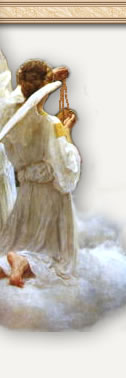




 |
|

|
|
|||||||||||
|
|
|
|
||||||||||||
 |
|
|
||||||||||||
 |
|
 |
|
|||||||||||
|
|
||||||||||||||
 |
 |
|
|
|
|
Deconstructing the Mass Of all contemporary intellectual movements, deconstruction is at once the most far-reaching and the most corrosive. Although its demise is frequently proclaimed, it persists in its dominance of our ruling institutions. The sociologist Peter Berger has noted that by all sociological indices, the most religious country in the world is India, while the least religious is Sweden. These facts led Berger to conclude that America is a country of Indians ruled by Swedes. Our rulers occupy key positions in Hollywood, TV, newspapers, academia and the higher reaches of certain chanceries and seminaries. The common thread is a deconstructionist outlook. What is deconstruction? As a philosophical movement, its locus is France and its key figure is the philosopher Jacques Derrida. Deconstruction began as a critique of the Enlightenment project. The French Enlightenment of the eighteenth century rejected the existence of God while seeking to retain philosophical and scientific truth, as well as the moral law. In a famous episode of the French Revolution, the crucifix was removed from the high altar of Notre Dame and replaced by a statue of a beautiful young woman, the goddess of Reason. This perfectly symbolized the Enlightenment project: Reason alone is sufficient to establish truth. Historically, this absolute reliance on human reason, which makes man the center of the universe, degenerated into the Reign of Terror from which emerged the autocrat Bonaparte. But even before this, the Enlightenment bore the seeds of its own destruction. The idea was to preserve all the positive (albeit secondary) consequences of Christianity while getting rid of the "superstitious" parts. Because the God of the Jews and Christians is a benevolent and purposive spirit who created ex nihilo, it made sense to know and use the creation. Thus, science and technology (and the modern university) first emerged in the Christian West. These developments could never have happened under the tutelage of Greek philosophy, which regarded matter as irrational, much less in the Asian tradition, which viewed the cosmos as an illusion. Additionally, because in Christianity God is the Father of all, His children are one family. Hence, the ideas of equality and human rights emerged in the West and nowhere else. These were the by-products of Christianity which the Enlightenment wished to retain while it rejected belief in the supernatural doctrines of the Church to which, it was alleged, "modern man" could no longer subscribe. As some form of religion was deemed necessary, the Enlightenment opted for a civic religion-worship of the reason-based state. While the restoration of the ancien régime in 1815 slowed this movement, certain dimensions of it quickly appeared in Germany. G.W.F. Hegel (1770-1831), the German idealist philosopher, is pivotal in understanding the modern world. Beginning as an orthodox Christian, but following in the footsteps of the Enlightenment, Hegel taught that religion is only philosophy (reason) in symbolic or mythological clothing, thus spawning in Protestant Germany the movement called "de-mythologization." This applied Hegel's philosophical premises to Scripture, with devastating effects. No longer was the Bible seen as the revealed word of God, but as a collection of fantastic stories imposed by early Christian writers upon a shadowy figure called the "historical Jesus." Under the guise of Modernism, this interpretative schema was to enter Catholic Scripture studies and flourish to this day. Although Hegel speaks in perfectly orthodox language, his God is not the transcendent Creator of Heaven and Earth, but only the gradual emergence of self-consciousness or self-reflecting thought. Hegel's God is totally immanent in history, and specifically in historical communities. Here we have the genesis of those contemporary theologies which locate God exclusively in the "faith community," theologies made explicit in much current liturgical theory and practice. Of even greater significance is Hegel's famous concept of the dialectic of spirit, which entails that God's nature is not fixed and eternal, but is continually emerging over time. Hence, God is not only fully immanent, but also necessarily limited by the parameters of time. Hegel made valiant efforts to conceal these theological outcomes by speaking of different levels of discourse, but clearly his God is completely incompatible with the God revealed in Scripture. It was left to Friedrich Nietzsche (1844-1900) to declare that the emperor had no clothes. Nietzsche affirmed that God was dead and that we had killed Him. This was not unalloyed good news for Nietzsche, since it made man completely autonomous. However, he took the obvious step in positing the Ubermensch, who is beyond good and evil. The outcome of this new conception of the human being in the blood-stained century that followed is well known. In the hundred years from 1860 to 1960, the Catholic Church waged a powerfully reasoned campaign against the ideas of such philosophers as Hegel and Nietzsche. Unfortunately, it did not much deflect their influence on modern culture. The key figure in the twentieth century march to deconstruction is J.P. Sartre (1905-1980), the creator of existentialism. Writing during the post-WWII malaise, Sartre (an atheist) argued that there could be no eternal truths or essences because there was no eternal mind to think them. It follows that if God does not exist, there can be no such thing as human nature capable of knowing eternal truths. Man is literally identical with his freedom. We create ourselves through purely spontaneous acts of the will. So no system of morality or theology can provide any guidance or exercise any prior constraint on human choices. Now, as radical as this is, Sartre, Nietzsche and Hegel remain in the tradition of Western philosophy; viz., they believe that the purpose of philosophy is to seek truth by means of reason. But it should be clear that the history of European philosophy had, by the 1960s, made the continuation of this program problematic. To complete the historical picture, we need to look at the philosophical situation in the United States. There, under the aegis of John Dewey (1859-1952), the new philosophical school of pragmatism emerged. For pragmatists, truth is simply what works or what is successful in bringing about what we want ("If it works for you, then it's true"). This concept of truth is obviously congenial to many aspects of American (and British) culture. Americans value a kind of practical, activist, results orientation and are not drawn to foundational or theoretical disputes. An easy-going pluralistic approach which papers over truth questions (such as "Don't we all worship the same God?") underlies modern pragmatism. The most prominent American deconstructionist today is Richard Rorty, who acknowledges Dewey as his philosophical mentor. To repeat, the historical progenitors of modern deconstructionism remain very much in the tradition of Western philosophy insofar as they all understand philosophy to be an autonomous discipline ordained to truth. The radical step taken by deconstructionists is to deny that there is any such thing as truth. For them, philosophical theories are only isolated moments or contexts within which limited meanings are created. When we lose interest in these contexts and move on to a different set of wants or interests, they (along with their "truths") disappear. Philosophy, according to these philosophers, should disappear. In pursuit of this goal, they write large, dense tomes, avidly read by philosophy students, demonstrating that philosophy is a dead end. For deconstructionists, not only is there no truth to know, there is no self to know it and so there is no soul to save or lose. Personal identity through time consists of no more than mere accidental episodes which generate their momentary "truths" and then are gone. Recalling the historical sketch of the roots of deconstruction, we can see that there is indeed a logic to their position. To the Enlightenment claim that philosophical and scientific truth is possible without God, the deconstructionists are replying, "No." Without an eternal, supernatural order to support them, there can be no absolute truths. There can be no more than temporary or ephemeral "truths." In following the Enlightenment to its logical end, deconstruction reaches nihilism. The meaning of human life is reduced to whatever happens to interest us at the moment, but from the truth values inherent in one event, nothing can be inferred about any other. It is this position which has attained intellectual dominance in the most prestigious academies and whose spillover effect has penetrated the entire culture. Thus, history is simply stories we tell each other about the past; literature is just our own interpretation of the texts; theology and religion are stories we tell each other about the gods; and philosophers should go off somewhere and quietly expire. Even science does not escape; it is merely stories we tell each other about nature. There is one important exception in science: Darwinism. Darwinism is left alone because it abets the deconstructionist project. A deconstructionist take on evolution could lead, in the words of Conway Morris, to an "assessment of man as an evolutionary accident [which] is to lead us into a libertarian attitude whereby, by virtue of a cosmic accident, we, and we alone, have no choice but to take responsibility for our own destiny and mold it to our desire" (New York Times, May 10, 1998). Now while it is easy to refute, or even satirize, deconstruction, the fact remains that deconstruction is highly congenial to a number of contemporary constituencies. To reject the very idea of truth itself may seem unsettling and a flirtation with nihilism; but that is an outcome that many welcome. Hollywood and the entertainment industry in general routinely produce works that celebrate nihilism, for which they are praised by critics and the intelligentsia. The deconstruction of all philosophy and religion, of truth itself, means that everything is up for grabs. All forms of life and culture are temporary and self-enclosed. Such a view is most attractive to those who wish to practice sexual deviance, for if there is no human nature (or if human nature is whatever we stipulate), there can be no unnatural acts. It is hardly an accident that the "gay nineties" coincide with the era of deconstruction. The attraction of nihilism is that, while it may have its depressing aspect, it makes man the arbiter of reality. One is reminded of the words of Milton's Satan in Paradise Lost: "Better to reign in Hell than to serve in Heaven." Indeed, when we recall that Satan is the principle of uncreation, we may begin to see the magnitude of the challenge that deconstruction poses. This overview of deconstruction sheds light on what is behind the modern theological and liturgical revolution. First and foremost, we have the idea that the Mass is an "ongoing workshop." There is no essence of the Mass; even the Consecration, apparently, can be altered. The liturgy must be constantly revalidated within the "contextual community" in which it is celebrated. As the community evolves into new meanings, the liturgy must follow. This is symbolized by the disposable missalettes now in universal use and by the claim that the Mass will require constant "updating." All this reflects the deconstructionist thesis that truth is a servant of man because it can be no more than a reflection of human evolution. Hence, God can be no more than a symbolic expression of the community. Theologies of an "emerging" God now abound and are directly expressed in liturgical theories that see the Mass as the celebration of the community at its present point of self-awareness. We are confronted with a radical immanence wherein the autonomous self is a black hole that swallows up God and his creation. The Mass is the first casualty because it effects the intersection of eternal truth with the fleeting temporal order. The Mass is the closest we can get existentially to eternity and to the essential truths of eternity, our ultimate goal. Immanentist theologians and liturgists must deconstruct the Mass as part of their core agenda of elevating the flux of pure temporality to the status of the absolute. Any liturgy that points to or reveals a transcendent infinite must be re-directed. Thus understood, we can see why efforts to preserve the traditional Latin Mass meet with such massive hostility. There is so much more at stake here than a mere preference for liturgical forms. To defend the traditional Mass is to defend the whole of Catholic dogma, theology and morality, because all of these depend on (1) the idea of eternal, unchanging truth and (2) a distinction between the finite and the infinite, the Mass representing the conjunction of the two. But let us conclude on a note of hope and courage. As successful
as deconstruction has been in taking over the academy and spreading
its ideas throughout modern culture, it cannot ultimately triumph
because it contradicts the deepest impulse in the human soul. Although
we are fully immersed in the temporal order, the aspiration of
the soul is for eternity. St. Augustine beautifully discusses this
in his Confessions (Bk. 4-15): Our manifold actions to preserve in being the good, the true, and the beautiful all fail because they are lost in the flux of time. In question 10 of Part 1 of the Summa, St. Thomas notes that eternity has no duration, no fleetingness, but that it contains all time, and he quotes the marvelous definition of eternity found in Boethius: "The simultaneously whole and perfect possession of boundless life." No amount of deconstruction can erase this ordination of the human heart toward its ultimate place of rest. |
|



♦ About The Mass ♦ Resources ♦ How To Help ♦ Contact Us ♦